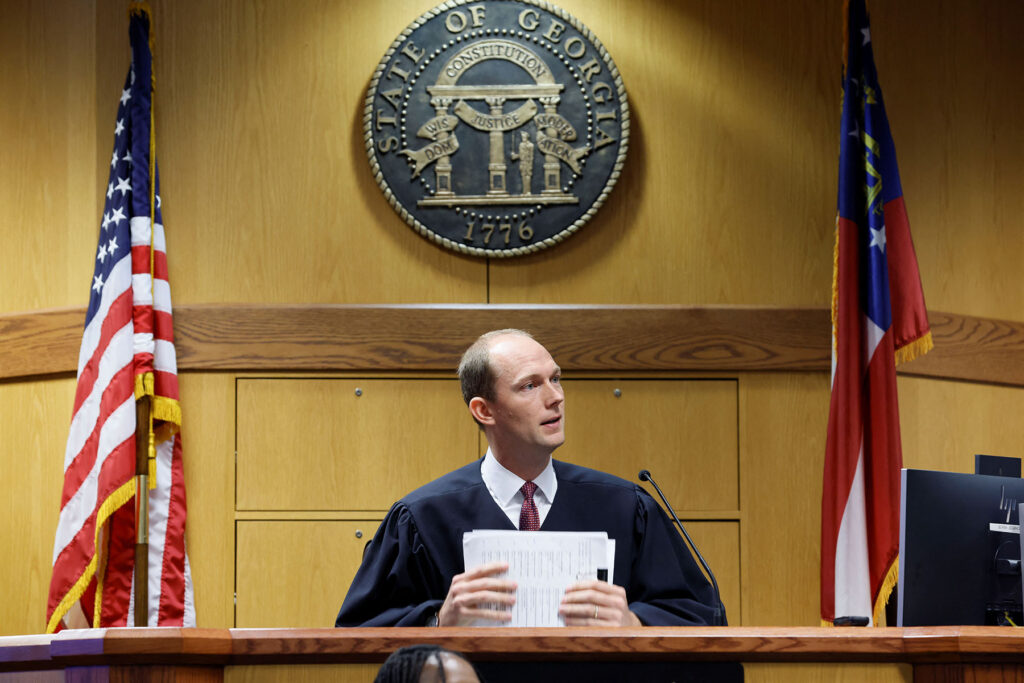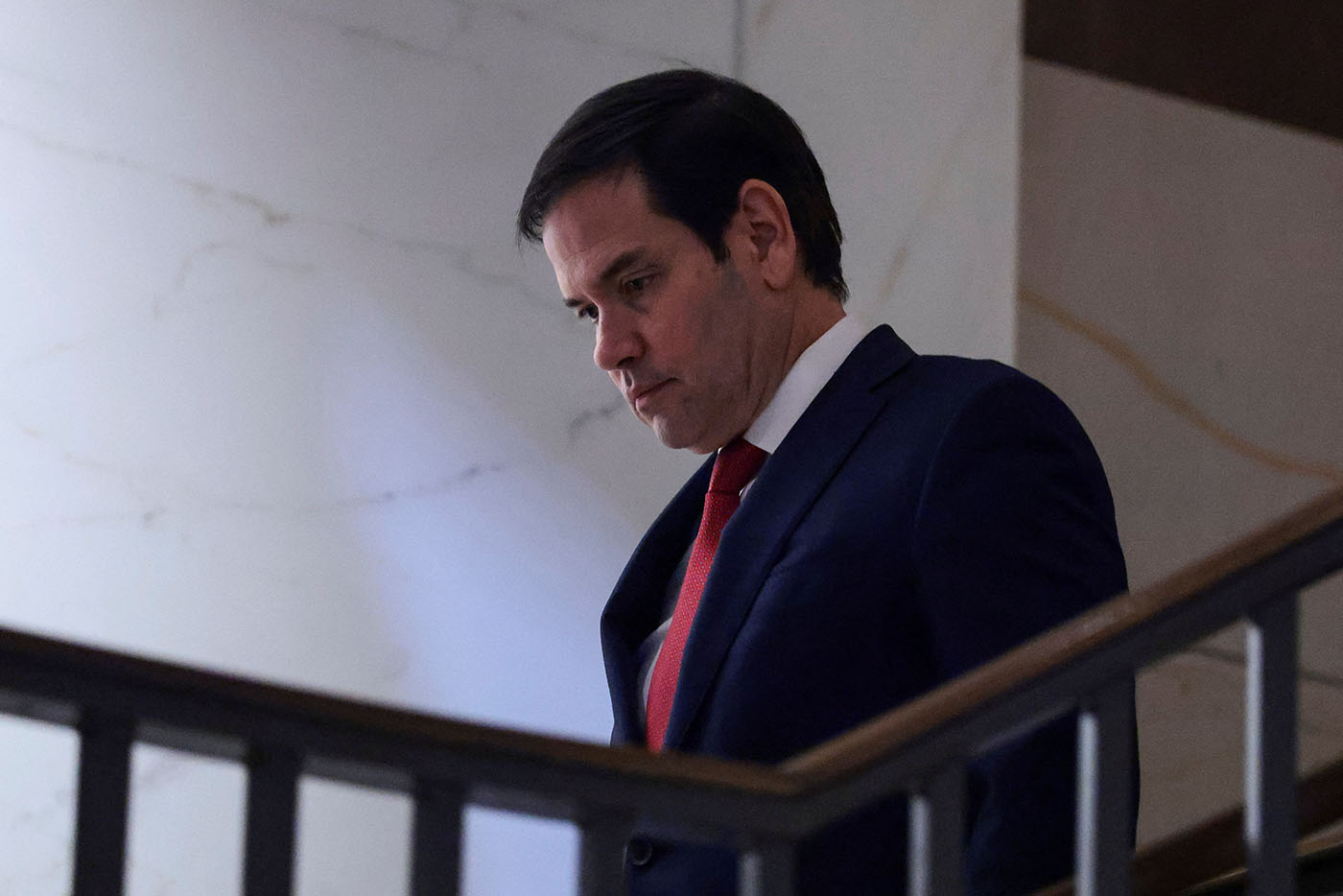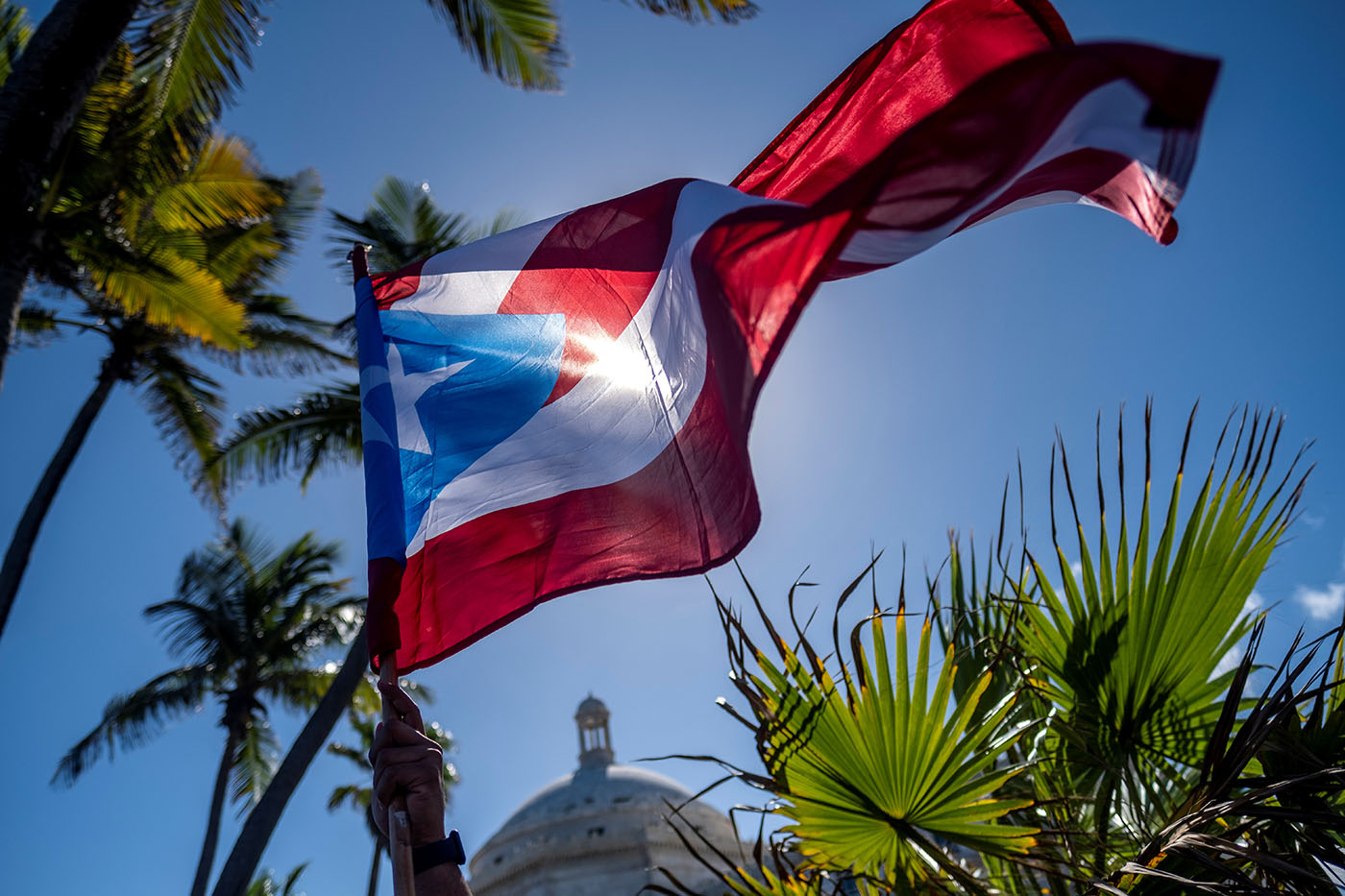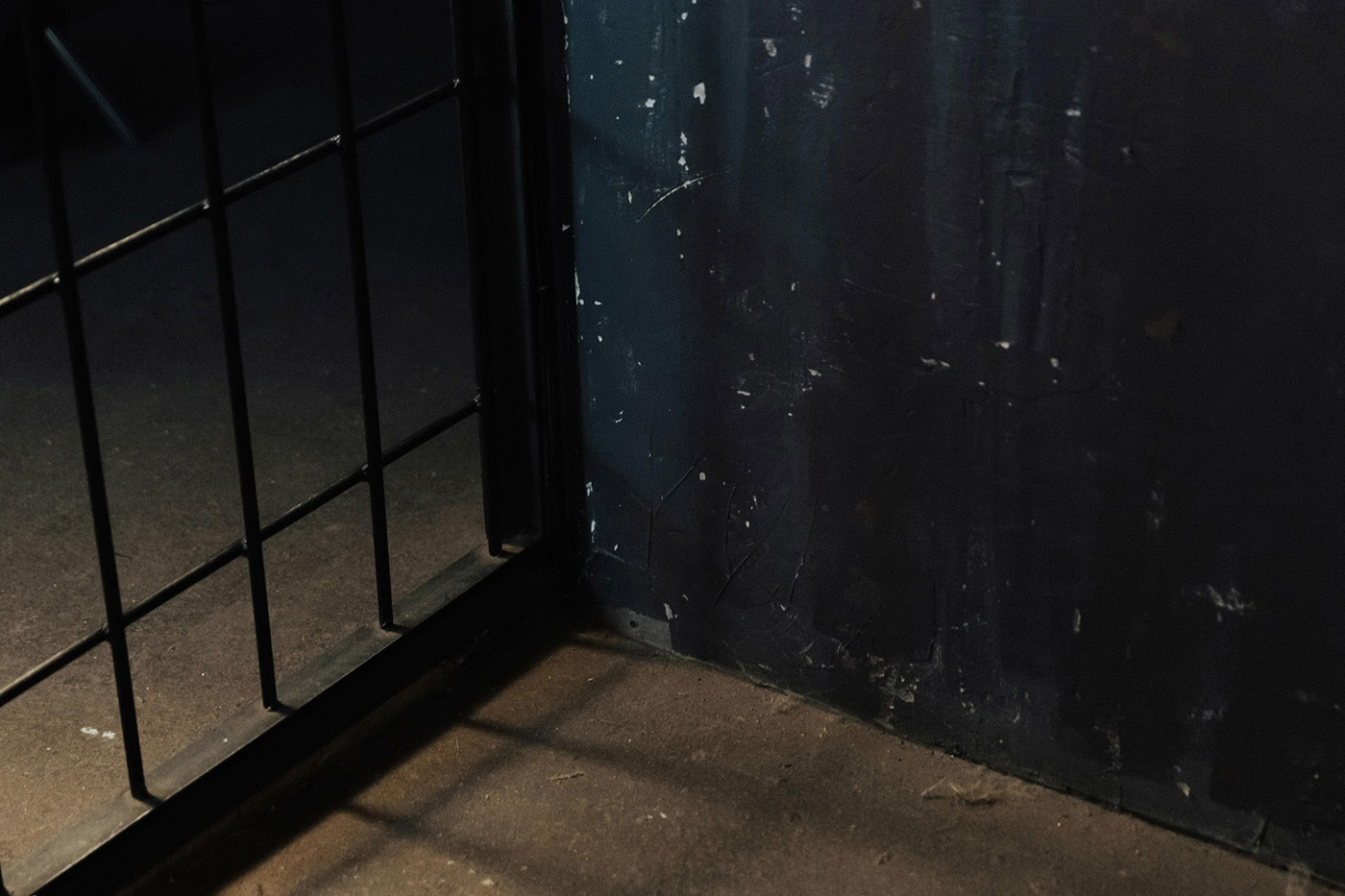A Fulton County judge has ordered restrictions on sharing information about the identity of jurors in former President Donald Trump’s upcoming election interference trial in Georgia.
Superior Judge Scott McAfee granted in part a request filed by District Attorney Fani Willis earlier this month, which originally sought to restrict any defendant, members of the press or any other person from disseminating any type of image of the jury, such as courtroom sketches or “written descriptions,” as well as any other personal information that could identify them to the public, hoping to curtail any potential harassment or intimidation.
“No party shall disclose during the pendency of the trial any juror/prospective juror information that would reveal a juror’s/prospective juror’s identity, including names, addresses, telephone numbers, or identifying employment information,” Judge McAfee wrote in the order.
Judge McAfee ruled that during the trial jurors will only be identified by numbers in both court filings and in open court and photography, videography, audio recordings and courtroom sketches will be prohibited.
But according to the Reporters Committee for the Freedom of the Press (RCFP), a nonprofit organization that challenged the initial proposal on First Amendment grounds, the state “walked back” its request to restrict the news media’s ability to publish information about jurors and prospective jurors. The revised proposal granted by the judge only prohibits parties involved in the proceedings, not members of the press, from sharing information that could potentially lead to juror identification.
Mara Gassmann, senior staff attorney at RCFP, says the organization believes the changes the state made to its initial proposal “were essential to comply with the First Amendment, and ensure the media can gather and report the news.”
Trump was indicted by a special grand jury and charged alongside 18 co-defendants in August for his alleged efforts to pressure Georgia election officials to invalidate the results of the 2020 presidential election. With Trump’s criminal trial approaching during his third campaign for the presidency, authorities have grown increasingly worried about threats of violence from his political supporters.
The district attorney is concerned about the potential doxxing of jurors involved in the trial, especially after what happened to members of the grand jury who voted for Trump’s indictment.
According to the state’s filing, after the indictment was issued, “anonymous individuals on conspiracy theory websites ‘shared a list of the 23 grand jurors [who approved the indictment] with their supposed full names, ages and addresses’ with the intent to harass and intimidate them.”
The district attorney thinks it could happen again, and this time, it could impact the integrity of the proceedings.
“It is clearly foreseeable that trial jurors will likely be doxed should their names be made public,” Willis wrote in the filing. “If that were to happen, the effect on jurors’ ability to decide the issues before them impartially and without outside influence would undoubtedly be placed in jeopardy.”
The RCFP, which provides free legal resources to journalists and advocates on behalf of media organizations, filed a friend-of-the-court brief on Sept. 15 acknowledging the district attorney’s concern but arguing nonetheless that the state’s request would infringe on the First Amendment rights of both journalists and the public.
“Members of the press are not insensitive to concerns that may arise with respect to juror safety and, in their editorial discretion, very well may take steps to shield the identities of jurors and prospective jurors in this matter,” RCFP wrote. “However, this Court cannot — consistent with the First Amendment — enter an order prohibiting members of the press from publishing such lawfully obtained information.”
RCFP argued that granting of the state’s request would impose a prior restraint on speech, especially of journalists. A prior restraint — an order issued by a court that prohibits the publication or broadcast of material deemed especially harmful — has long been considered a serious step because it diminishes the marketplace of ideas and the pool of available information that informs citizens of a self-governing society.
“An order that restrains the publication of lawfully acquired information strikes at the heart of the Constitution’s protections for a free press,” RCFP argued.
Sept. 25, 2023 — Fulton Superior Judge Scott McAfee Order
Sept. 15, 2023 — Reporters Committee for Freedom of the Press Amicus Brief
Sept. 6, 2023 — State’s Motion to Restrict Jurors’ Identities
Tags




